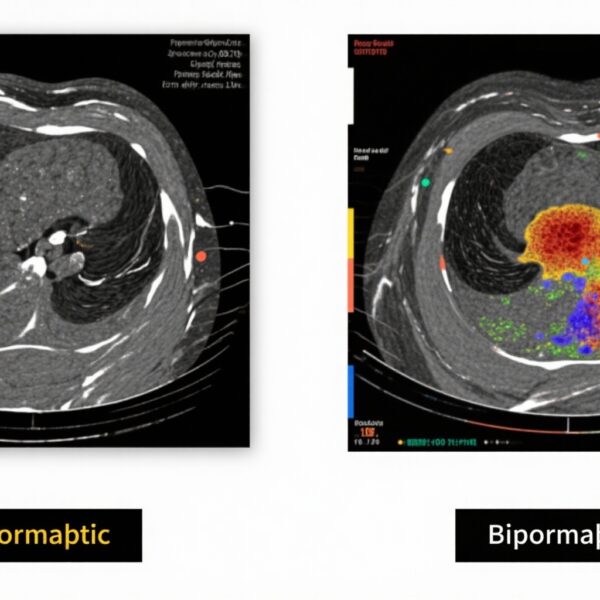Highlight
Pregnant individuals with polycystic ovary syndrome (PCOS) face significantly increased risks of gestational diabetes, preeclampsia, and preterm birth. This large, double-blind randomized clinical trial examined whether daily myo-inositol supplementation during pregnancy could reduce these adverse outcomes.
The study showed no statistically significant reduction in a composite outcome of gestational diabetes, preeclampsia, or preterm birth in the myo-inositol group compared to placebo.
Myo-inositol supplementation was well tolerated, but these findings do not support its routine use to prevent pregnancy complications in PCOS.
Study Background
Polycystic ovary syndrome (PCOS) is a common endocrine disorder affecting reproductive-aged individuals, characterized by hyperandrogenism, menstrual irregularities, and polycystic ovarian morphology. PCOS is also associated with insulin resistance and metabolic dysregulation that pose increased risks for adverse pregnancy outcomes such as gestational diabetes mellitus (GDM), hypertensive disorders including preeclampsia, and preterm delivery.
Managing these pregnancy complications remains a clinical challenge, and there is an unmet need for safe, effective interventions to reduce maternal and neonatal morbidity in this patient population. Myo-inositol, a naturally occurring sugar involved in insulin signaling pathways, has been proposed as a potential supplement to improve metabolic and reproductive parameters in PCOS. Prior smaller studies and pilot data suggested it might reduce insulin resistance and improve pregnancy outcomes, warranting large-scale rigorous evaluation.
Study Design
This multicenter, double-blind, placebo-controlled randomized clinical trial was conducted across 13 hospitals in the Netherlands. Pregnant individuals diagnosed with PCOS, between 8 and 16 weeks’ gestation, were enrolled from June 2019 through March 2023.
A total of 464 participants were randomized 1:1 to receive either myo-inositol (2 g twice daily) combined with a low dose of folic acid (0.2 mg) or matching placebo sachets containing only folic acid. The intervention continued throughout pregnancy until delivery. The primary endpoint was a composite of key pregnancy complications: gestational diabetes, preeclampsia, or preterm birth before 37 weeks.
Key Findings
The trial enrolled a predominantly White cohort (86.1%) with a mean age of 31.5 years. Baseline biochemical hyperandrogenism was slightly more frequent in the myo-inositol group (29.0% vs. 18.5%), but this imbalance was adjusted for in analysis.
Primary composite outcome events occurred in 25.0% of the myo-inositol group versus 26.8% of the placebo group (relative risk [RR] 0.93, 95% confidence interval [CI] 0.68 to 1.28; P = .67), indicating no statistically significant benefit.
Secondary outcomes, including individual rates of gestational diabetes, preeclampsia, and preterm birth, were similarly not significantly different between groups.
The intervention was safe and well tolerated, with no reported adverse events related to myo-inositol supplementation.
Expert Commentary
This rigorously designed randomized controlled trial provides high-quality evidence that myo-inositol supplementation during pregnancy does not reduce the incidence of major complications in individuals with PCOS. While mechanistically attractive given its role in insulin signaling, the lack of clinical efficacy highlights the complexity of PCOS pathophysiology and pregnancy risk.
These results contrast with smaller previous studies which may have been underpowered or biased. The large sample size and robust methodology strengthen confidence in these null findings.
Limitations include the predominantly White ethnicity of the cohort, which might limit generalizability to more diverse populations. Also, the myo-inositol dosing and formulation reflect common clinical practice but future research could explore alternative regimens or combination therapies.
Current clinical guidelines for managing pregnancy in PCOS should continue to emphasize established preventive measures for gestational diabetes and hypertensive disorders, including dietary management, lifestyle optimization, and close obstetric monitoring.
Conclusion
In conclusion, daily myo-inositol supplementation starting early in pregnancy for individuals with PCOS did not lower the combined risk of gestational diabetes, preeclampsia, or preterm birth. These findings suggest that routine use of myo-inositol for preventing pregnancy complications in this population is not supported by current evidence.
Further research is needed to identify more effective strategies for improving pregnancy outcomes in PCOS, potentially focusing on personalized interventions targeting metabolic and hormonal pathways.
References
- van der Wel AWT, Frank CMC, Bout-Rebel R, et al. Myo-inositol Supplementation to Prevent Pregnancy Complications in Polycystic Ovary Syndrome: A Randomized Clinical Trial. JAMA. 2025;334(13):1151-1159. doi:10.1001/jama.2025.13668.
- Teede HJ, Deeks AA, Moran LJ. Polycystic ovary syndrome: a complex condition with psychological, reproductive and metabolic manifestations that impacts on health across the lifespan. BMC Med. 2010;8:41. doi:10.1186/1741-7015-8-41.
- Corrado F, Santamaria A, Palomba S. Myo-inositol administration in polycystic ovary syndrome: a systematic review. Eur Rev Med Pharmacol Sci. 2011;15(10):1144-1150.
- American Diabetes Association. Standards of Medical Care in Diabetes—2024. Diabetes Care. 2024;47(Suppl 1):S1-S283.



